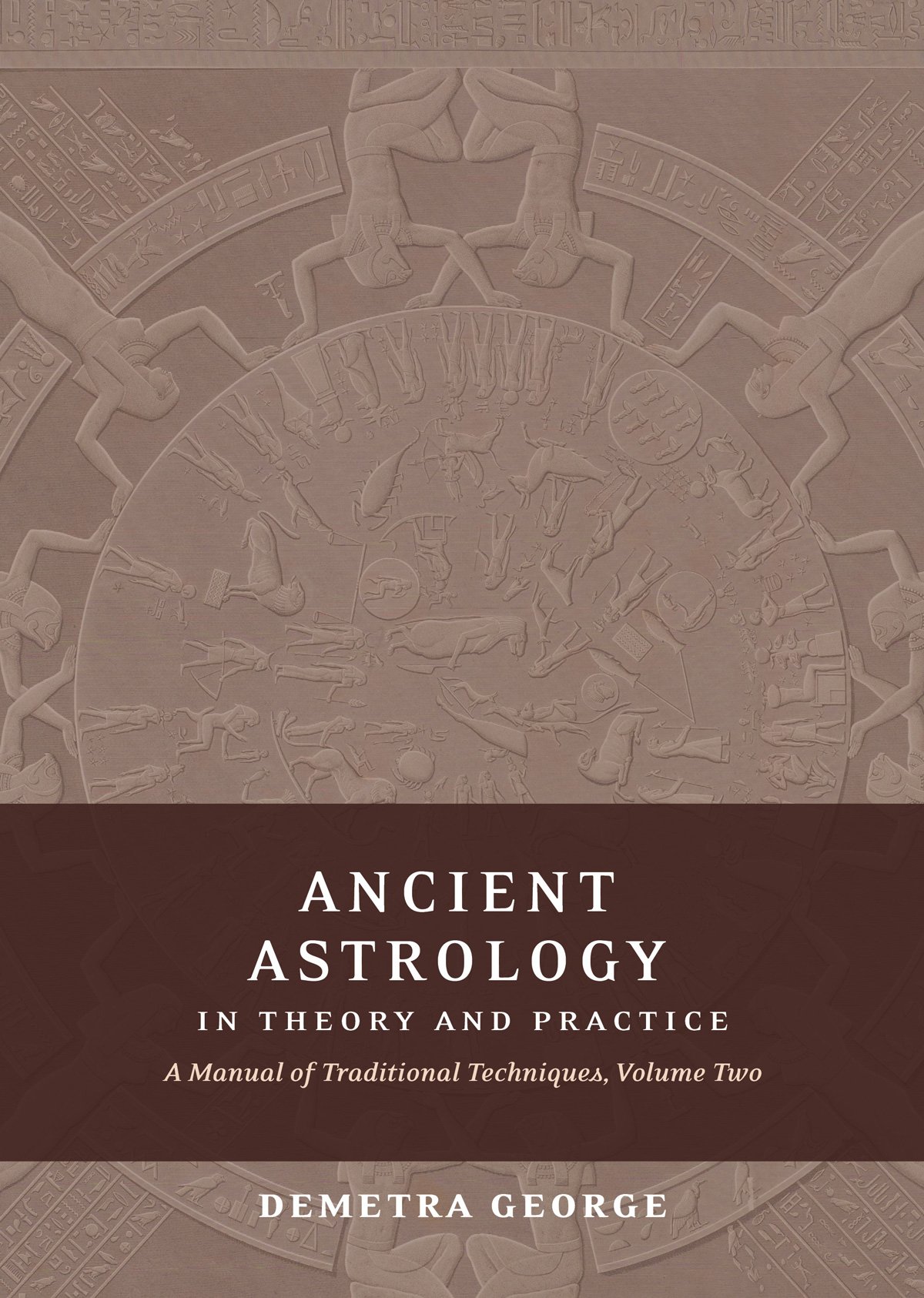
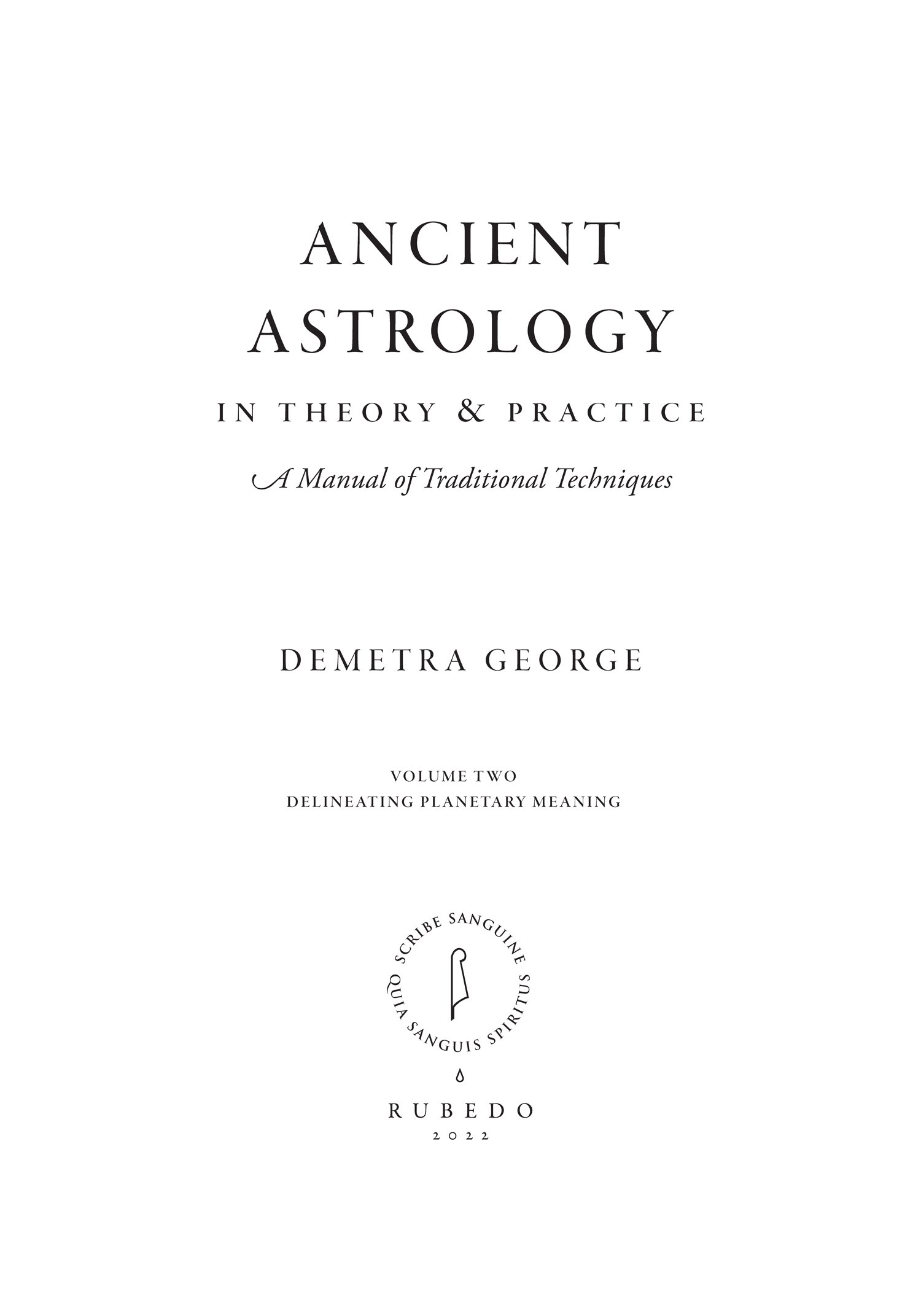
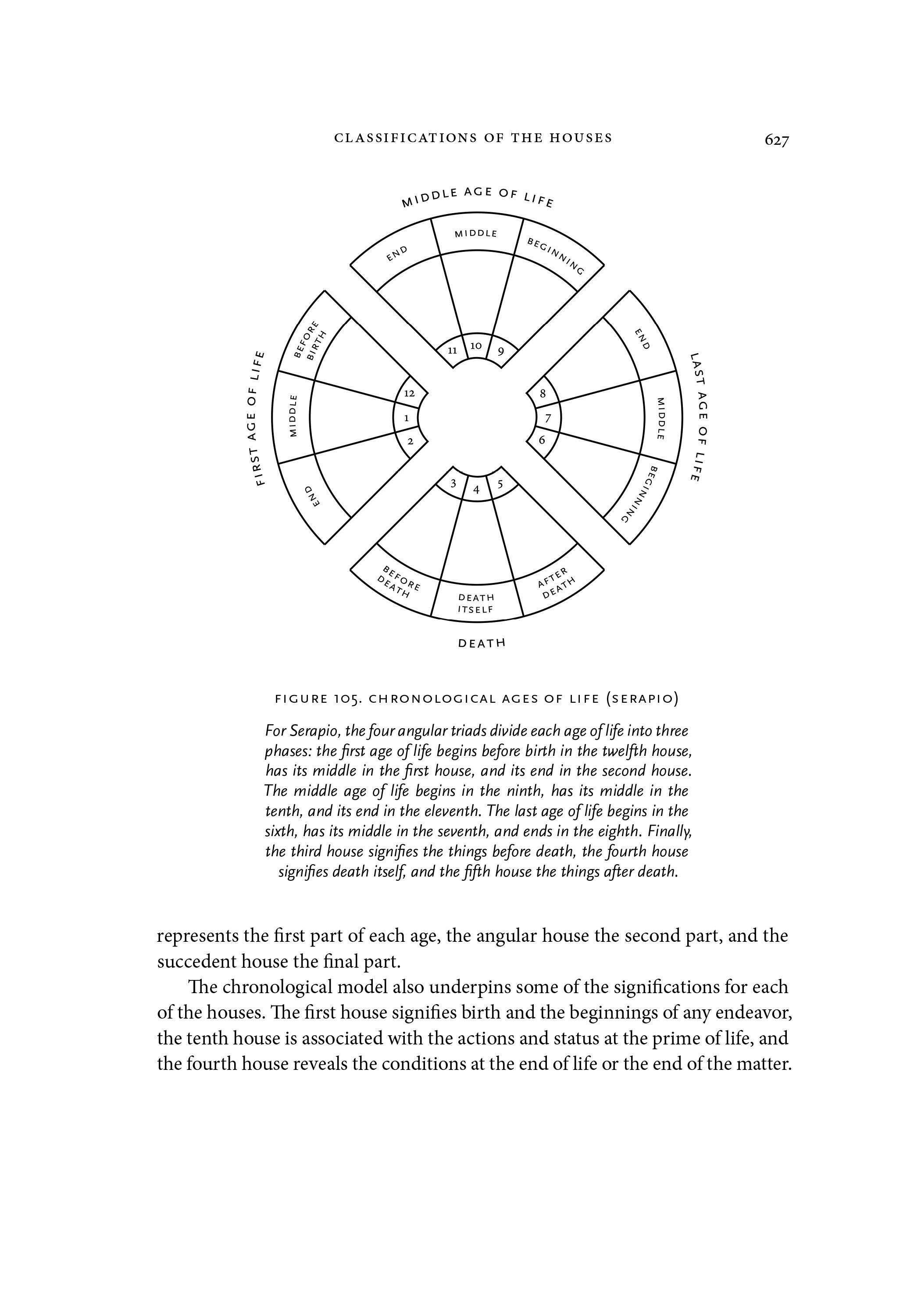
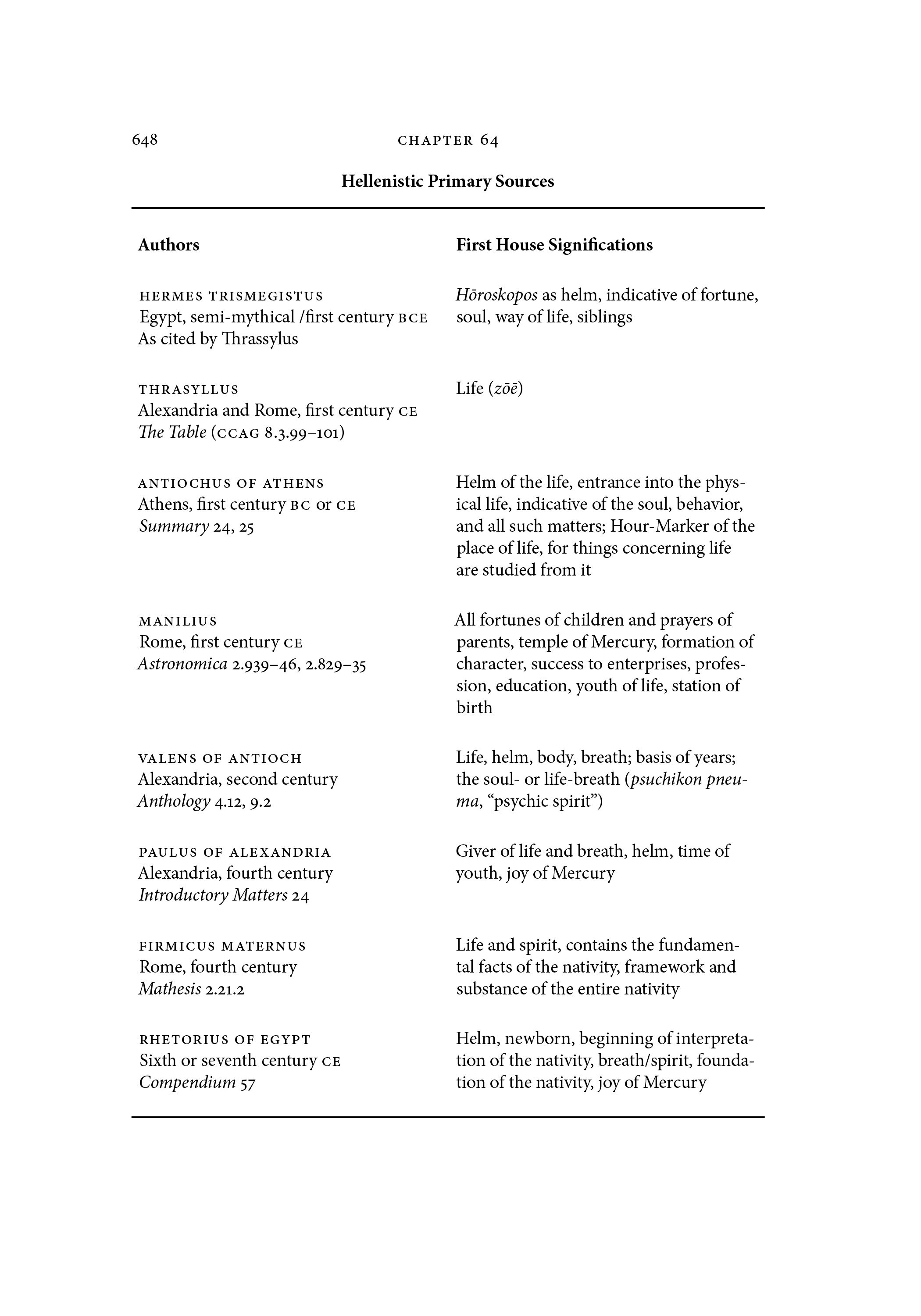
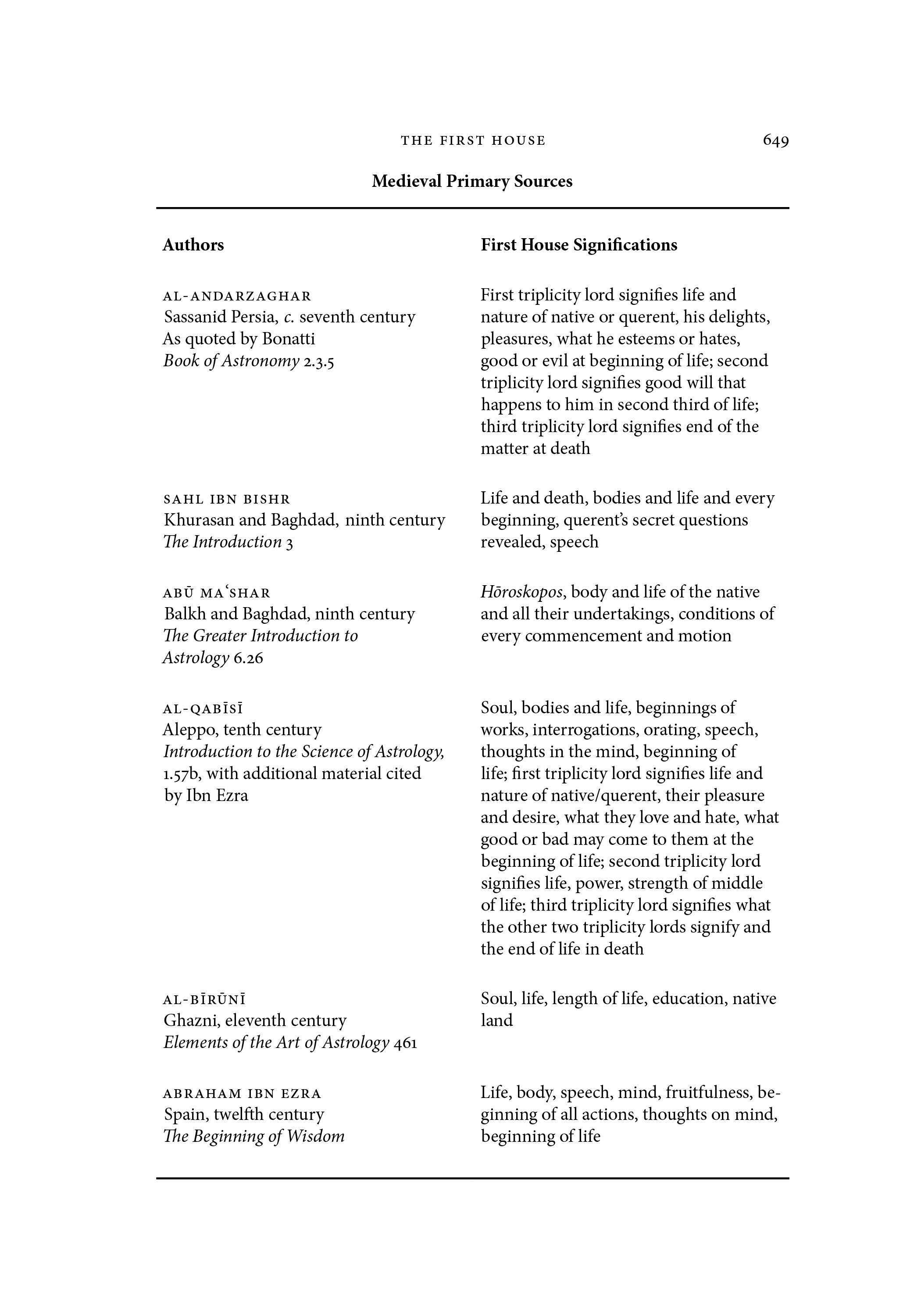
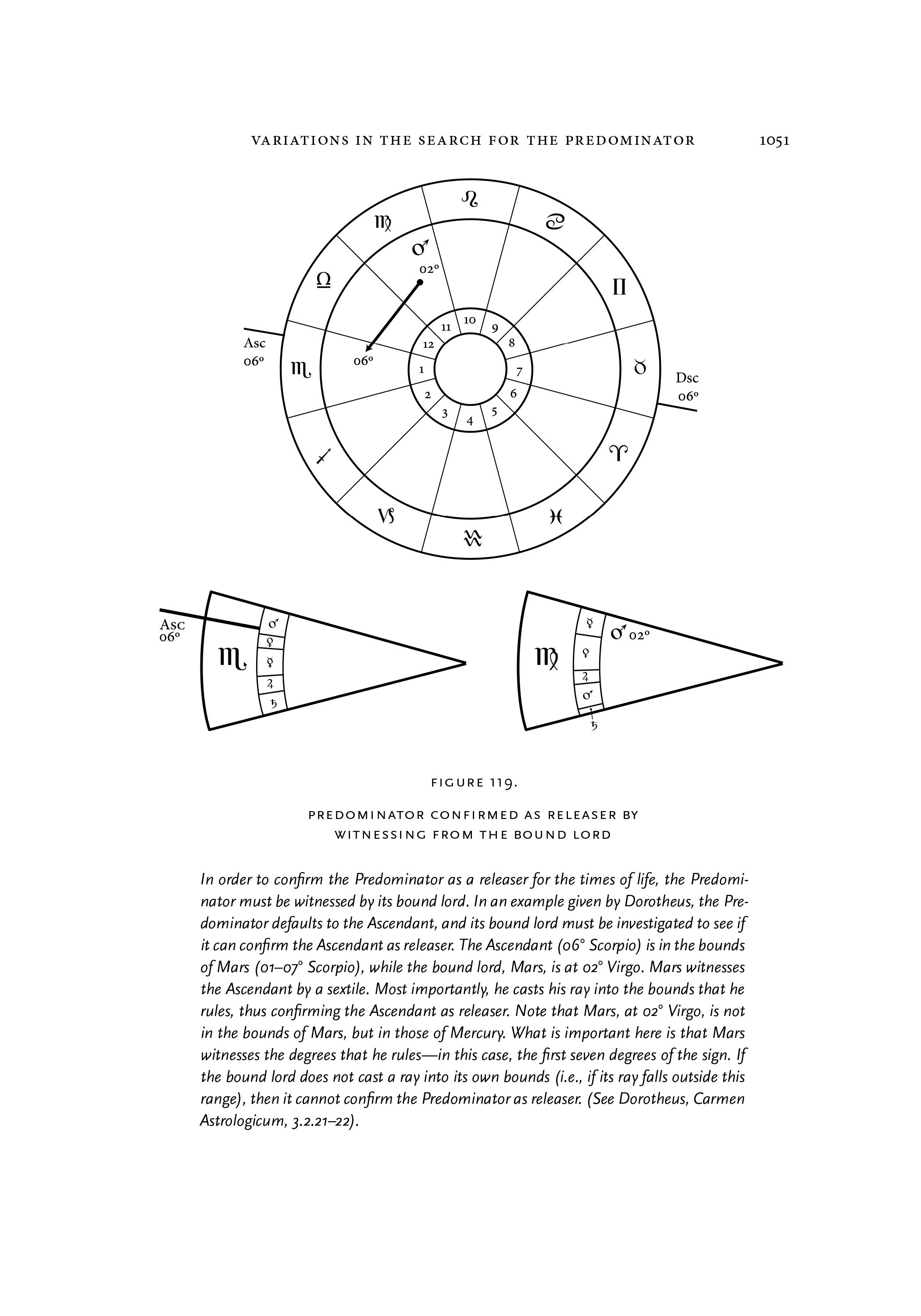
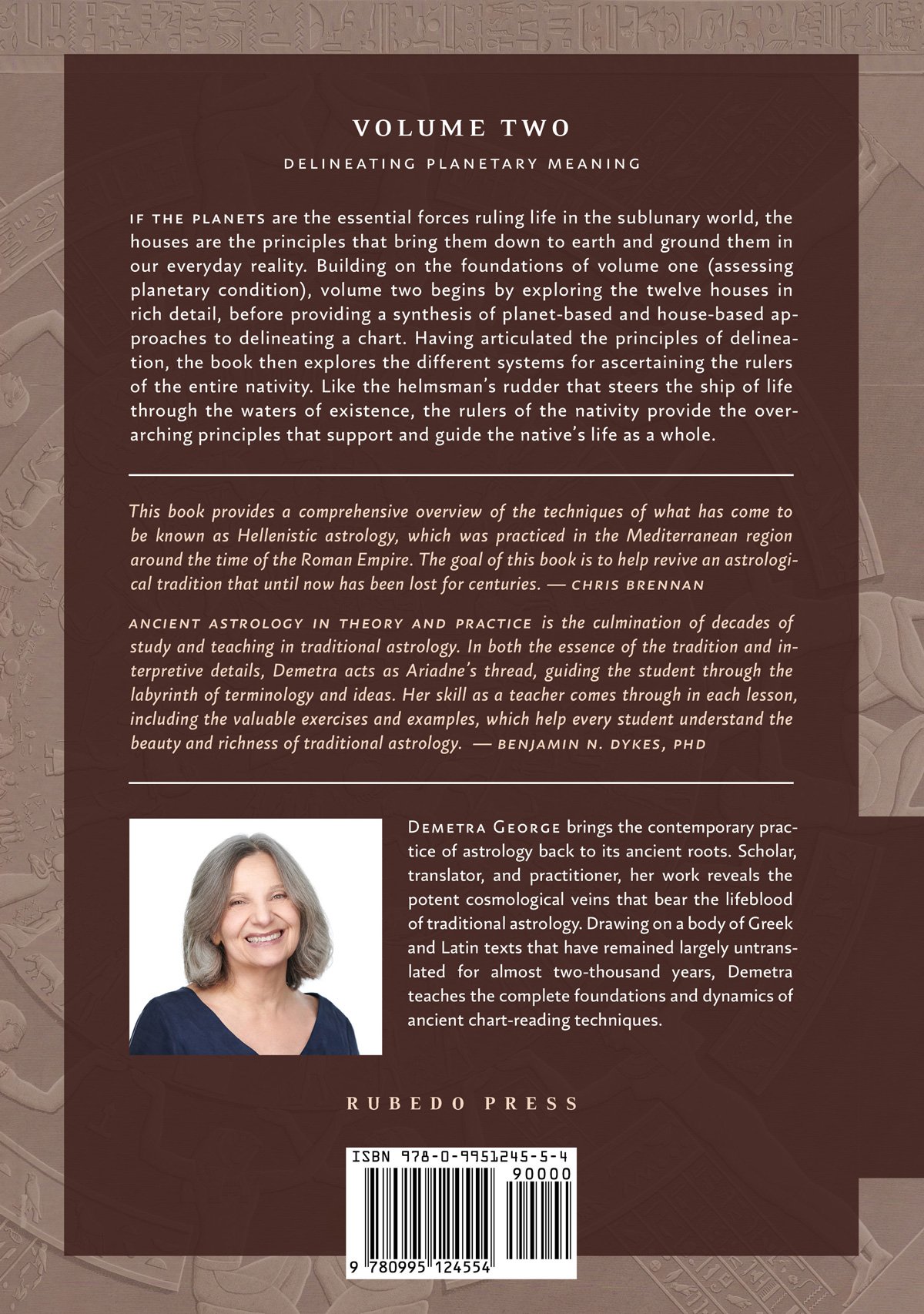
Ancient Astrology in Theory and Practice, Volume Two
Paperback | 7 x 10 | B&W | Illustrated | 698 pp.
Auckland · Rubedo Press
—Volume two—
NZD $72.00 (paperback)
Price listed in New Zealand Dollars.
Approximate price in other currencies:
GBP £37.00 | EU €42.00 | USD $49.00 | AUD $65.00
Please note that all orders are processed in New Zealand Dollars, but you will only be charged the equivalent amount in your own currency.
Ancient Astrology
in Theory and Practice
A Manual of Traditional Techniques
Volume Two Delineating Planetary Meaning
Demetra George
“This book provides a comprehensive overview of the techniques of what has come to be known as Hellenistic astrology, which was practiced in the Mediterranean region around the time of the Roman Empire. The goal of this book is to help revive an astrological tradition that until now has been lost for centuries”.—Chris BRENNAN
“Demetra George’s Ancient Astrology in Theory and Practice is the culmination of decades of study and teaching in traditional astrology. In both the essence of the tradition and interpretive details, Demetra acts as Ariadne’s thread, guiding the student through the labyrinth of terminology and ideas. Her skill as a teacher comes through in each lesson, including the valuable exercises and examples, which help every student understand the beauty and richness of traditional astrology”.—Benjamin DYKES, PhD
DEVELOPED UNDER THE SHADOWS of the Egyptian temples, Hellenistic astrology is an ancient form of divination inherited from Mesopotamian wisdom traditions. Distilled in Græco-Roman antiquity, and refined in the fires of philosophy and astronomy, it forms the bedrock of traditional western astrology (while also bearing profound similarities to Jyotish or Vedic astrology). Drawing on a body of Greek texts that have remained largely untranslated for almost two-thousand years, Demetra George brings the contemporary practice of astrology back to its ancient roots. Scholar, translator, and practitioner, her work reveals the potent cosmological veins that bear the lifeblood of traditional astrology.
Ancient Astrology in Theory and Practice is, in essence, a training manual for the study and practice of Hellenistic astrology. In two volumes, it provides the complete foundations and detailed dynamics of ancient chart-reading techniques. Each volume and each technique is richly illustrated with diagrams, example charts, and practical exercises.
Volume 2: Delineating Planetary Meaning
If the planets are the essential forces ruling life in the sublunary world, the houses are the principles that bring them down to earth and ground them in our everyday reality. Building on the foundations of volume one (Assessing Planetary Condition), volume two begins by exploring the ancient house system in rich detail, before providing a synthesis of planet-based and house-based approaches to delineating a chart. Having articulated the principles of delineation, the book then explores the different systems for ascertaining the rulers of the entire nativity. Like the helmsman’s rudder that steers the vessel through the waters of existence, the masters and lords of the nativity provide the overarching principles that support and guide the native’s path through life as a whole.
C O N T E N T S
Volume two—Delineating Planetary Meaning
(Section and chapter numbering continued from volume one)
Historical Note
Acknowledgements
Part Seven: Down to Earth
61. Down to Earth
62. Classifications of the Houses
63. Topics of the Houses
64. The First House: The Hour-Marker (Hōroskopos)
65. The Second House: Gate of Hadēs (Haidou Pulē)
66. The Third House: Goddess (Thea)
67. The Fourth House: The Subterranean Place (Hupogeion)
68. The Fifth House: Good Fortune (Agathē Tuchē)
69. The Sixth House: Bad Fortune (Kakē Tuchē)
70. The Seventh House: Setting (Dusis)
71. The Eighth House: The Idle Place (Argos)
72. The Ninth House: God (Theos)
73. The Tenth House: Midheaven (Mesouranēma)
74. The Eleventh House: Good Spirit (Agathos Daimon)
75. The Twelfth House: Bad Spirit (Kakos Daimon)
76. Summary and Source Readings
Part Eight: Interpreting the Twelve Topics of Life
77. Placing the Planets in the Houses: Guidelines
78. The Nature and Condition of the House: Angularity, Favorability, Witnessing
79. Delineating a Planet in a House
80. Planets and House Rulerships
81. The Planet’s Domicile Lord
82. The Outcome of House Topics
83. The Delineation of House Topics
84. The Lord of a House
85. Integration: Bringing the Planet and House Approaches Together
Part Nine: Rulers of the Nativity
86. Rulers of the Nativity: An Introduction
87. Steering the Ship of Life: The Domicile Lord of the Ascendant
88. Introducing Lots: The Lot of Fortune and the Lord of Fortune
89. The Triplicity Lords of the Sect Light: Bestowers of Happiness, Prosperity, Substance, and Eminence
90. The Ultimate Rulers of the Chart: The Predominator, the Master of the Nativity, and the Lord of the Nativity
91. The Predominator (Epikratētōr)
92. Variations in the Search for the Predominator
93. The Master of the Nativity (Oikodespotēs)
94. The Lord of the Nativity (Kurios)
95. The Five Rulers of the Nativity: Final Summary
96. Length of Life: An Overview of Timing Methods
97. Length of Life: An Overview of Procedures
98. Source Readings for the Rulers of the Nativity
99. Afterword
Part Ten: Glossary, Sources, Bibliography
I. Glossary
II. Annotated Bibliography of Hellenistic Astrologers
III. Annotated Bibliography of Medieval Astrologers
IV. Bibliography
V. Index
VI. Errata to Volume One
About the Author
Demetra George (M.A. Classics) is a pioneering mythic-archetypal astrologer, who studies Greek astrological texts, as well as the transmission of classical doctrines into the Arabic and Medieval worlds. Recipient of the Regulus Award, her work provides the keys to understanding all forms of traditional astrology.